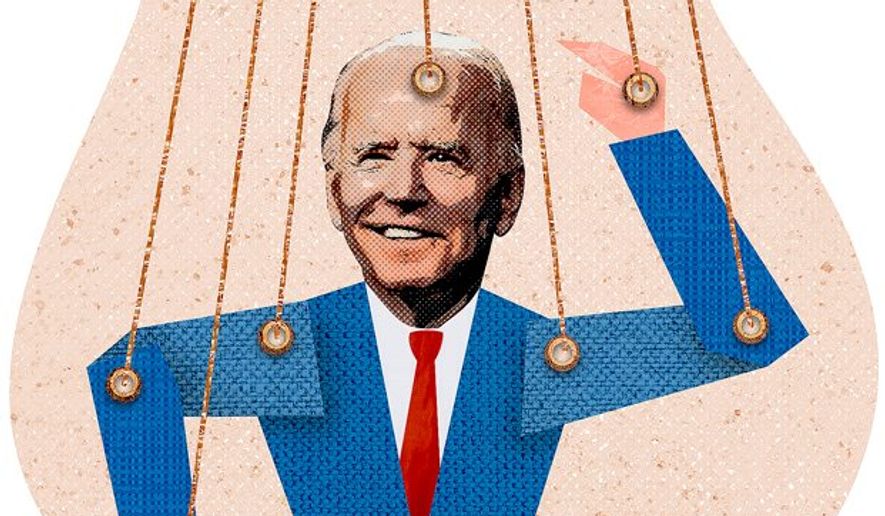OPINION:
The political action committee that Democrats are counting on to keep President Biden and Vice President Kamala Harris in the White House faces new scrutiny.
The Future Forward political action committee raked in more than $50 million for the purpose of reelecting Mr. Biden, but the Federal Election Commission is being asked to take a closer look at the organization’s alleged failure to disclose donors in accordance with the law.
Some of the organization’s best-known contributors reportedly include former Google chief Eric Schmidt, Facebook co-founder Dustin Moskovitz and hedge fund manager Stephen F. Mandel Jr. It’s the existence of donors who are hidden from the public raising questions of propriety.
The government watchdogs at the National Legal and Policy Center recently filed an FEC complaint claiming a discrepancy in the transfer of millions between two closely related Future Forward entities. Citing reporting from the Washington Free Beacon, the group argued Future Forward Action USA, a 501(c)(4) dark money organization, told the IRS that it gave $15.3 million to the Future Forward PAC.
That wouldn’t be a problem, except that the PAC only reported receiving $3.4 million in its filings with the FEC, according to the complaint. The allegation is that the dark money group is being used as a pass-through to prevent donor names from being released under public disclosure laws.
“In this case it’s clear the FF PAC knew the identity of the donors to FF Action,” the complaint stated, “because they are closely related organizations with Chauncey McLean as head of both organizations.”
Groups like Future Forward Action generally do not need to identify their donors, but that’s not the case if they’re merely collecting cash and handing it to off to a political action committee. When they act as a conduit, they need to be transparent about the individuals behind the donations. The FEC has taken instances of pass-through donations very seriously in the past.
In 2017, the commission fined the American Conservative Union $350,000 for its role in transferring a $1.7 million donation from an anonymous donor to a Missouri super PAC.
Even the Department of Justice takes campaign finance disclosure requirements seriously. Just over a year ago, a super PAC chief in Puerto Rico was sentenced to more than a year in prison for scheming to mislead the FEC about the identity of donors.
Less than a month after DOJ announced that sentence, Mr. Biden spoke from the Roosevelt Room in the White House, asserting that there is “too much money that flows in the shadows to influence our elections. It’s called dark money.” He added: “Dark money erodes public trust. We need to protect public trust. And I’m determined to do that.”
Mr. Biden doesn’t seem particularly offended by the dark money that is benefiting his reelection ambitions. In fact, White House deputy chief of staff Jennifer O’Malley Dillon has publicly endorsed Future Forward PAC, saying it would “again play a key role” in 2024 as it did in 2020.
Even in a civil matter such as an FEC complaint, the presumption of innocence remains. To restore public trust, the FEC must investigate whether money is actually flowing from the shadows to benefit the president’s reelection.




Please read our comment policy before commenting.